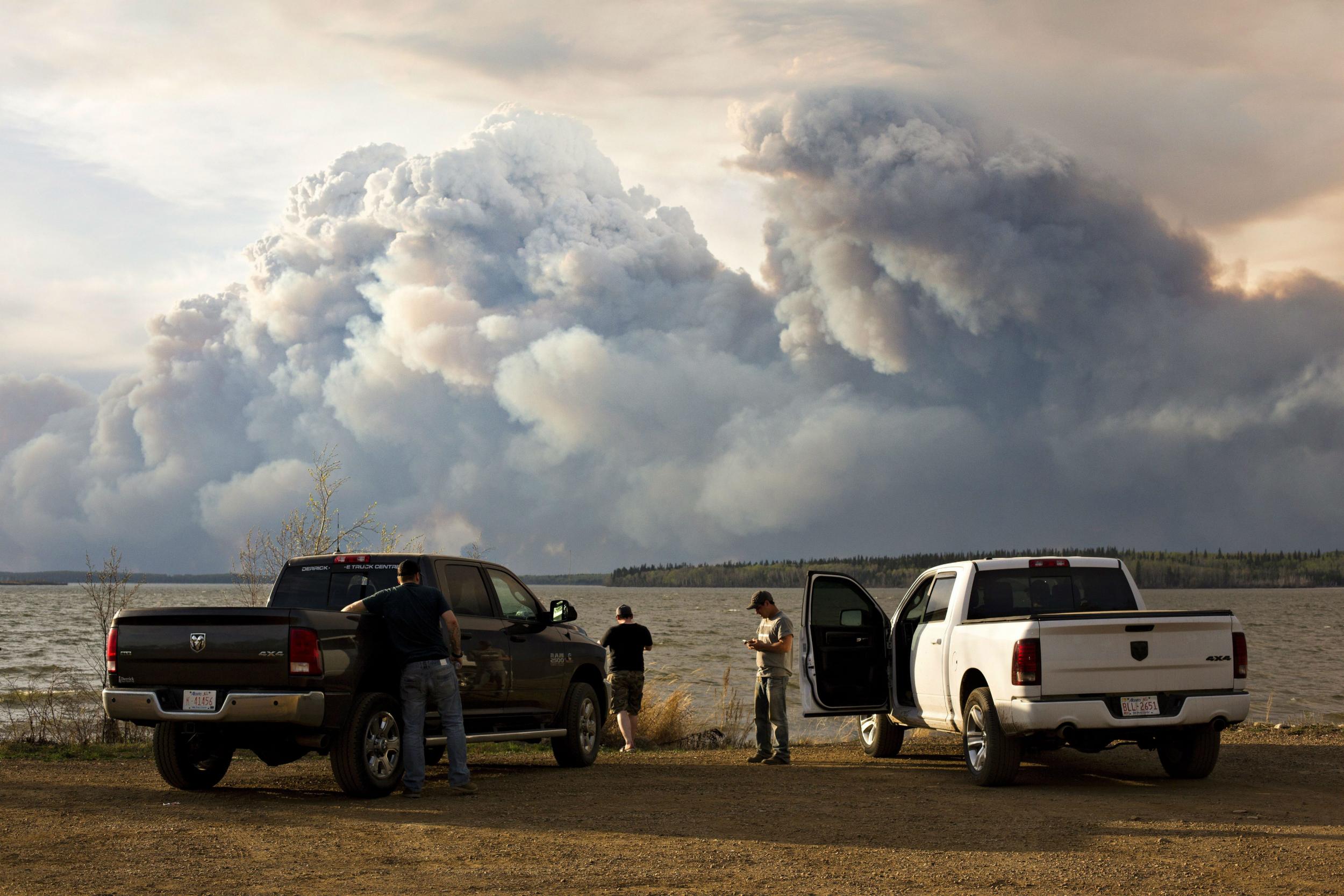Fort McMurray fire: Only weather can halt advance of massive Canada blaze
The fire is raging in the heart of the country's energy economy

More people have been forced to flee their homes after a massive wildfire in western Canada continued to grow with firefighters unable to stop its advance.
A state of emergency has been declared and more than 88,000 people have been forced to leave the town of Fort McMurray, Alberta, located in the heartland of Canada’s energy economy.
Late on Wednesday, flames fanned south from Fort McMurray, the main city in Canada's oil sands region. Officials issued mandatory evacuation orders for the Anzac, Gregoire Lake Estates and Fort McMurray First Nation communities, located about 30 miles south of the city, Reuters reported.

Authorities said there had been no known casualties from the blaze itself, but fatalities were reported in at least one vehicle crash along the evacuation route.
Emergency teams have said they can do little do stop the fire’s advance and that the only hope now is cooler weather slowing the blaze. The most recent weather forecast suggests cooler temperatures and possible rain, offering hope that controlling the blaze could become easier.
Thousands bunked down for the night on Wednesday in arenas, hockey rinks and oil work camps that were often short of fuel and food.

Fire also threatened the airport, and web cam images showed black smoke engulfing the area late on Wednesday evening. Officials confirmed that a hotel north of the main terminal had caught fire, but as the sun rose on Thursday new images of the airport showed no obvious damage the news agency said.
Major oil sands facilities were not in the path of the flames, but companies' efforts to help employees and evacuees and protect pipelines affected production and helped boost the price of crude.
Austrian consultancy JBC Energy estimated that some 500,000 barrels per day of capacity was offline.
Join our commenting forum
Join thought-provoking conversations, follow other Independent readers and see their replies
Comments
Bookmark popover
Removed from bookmarks